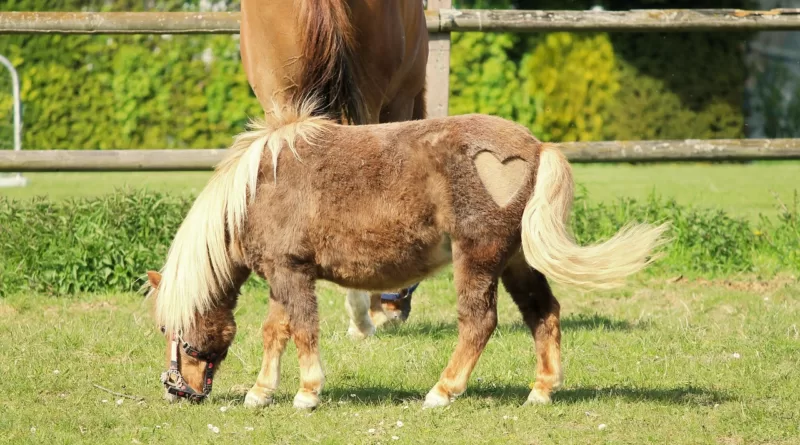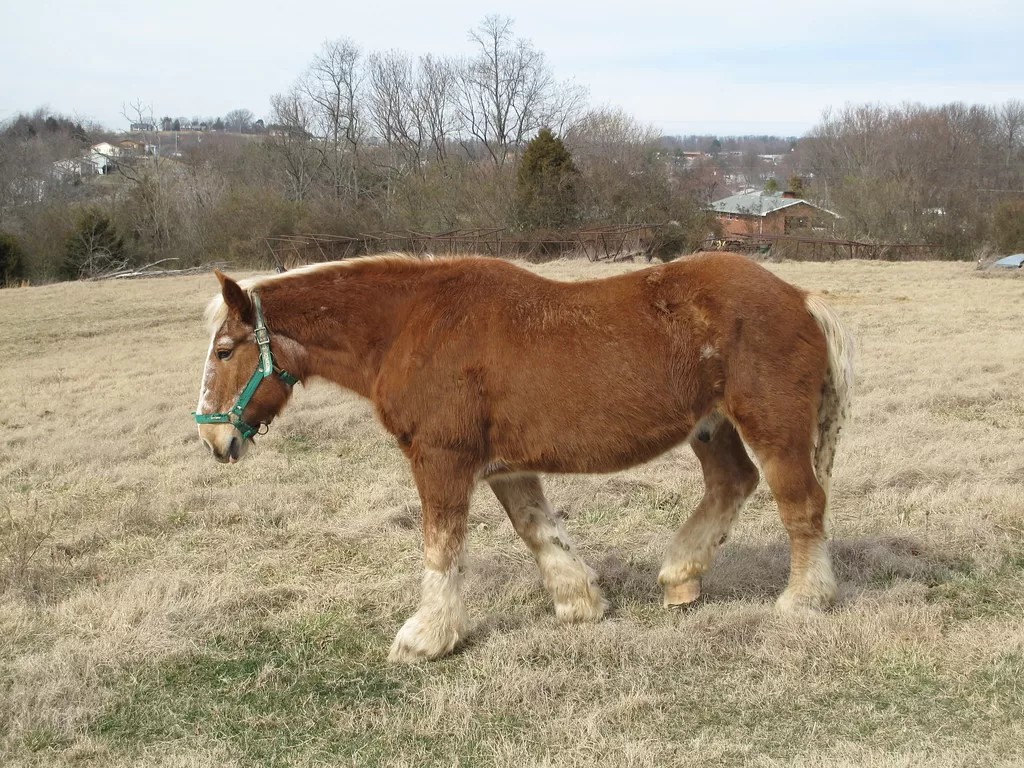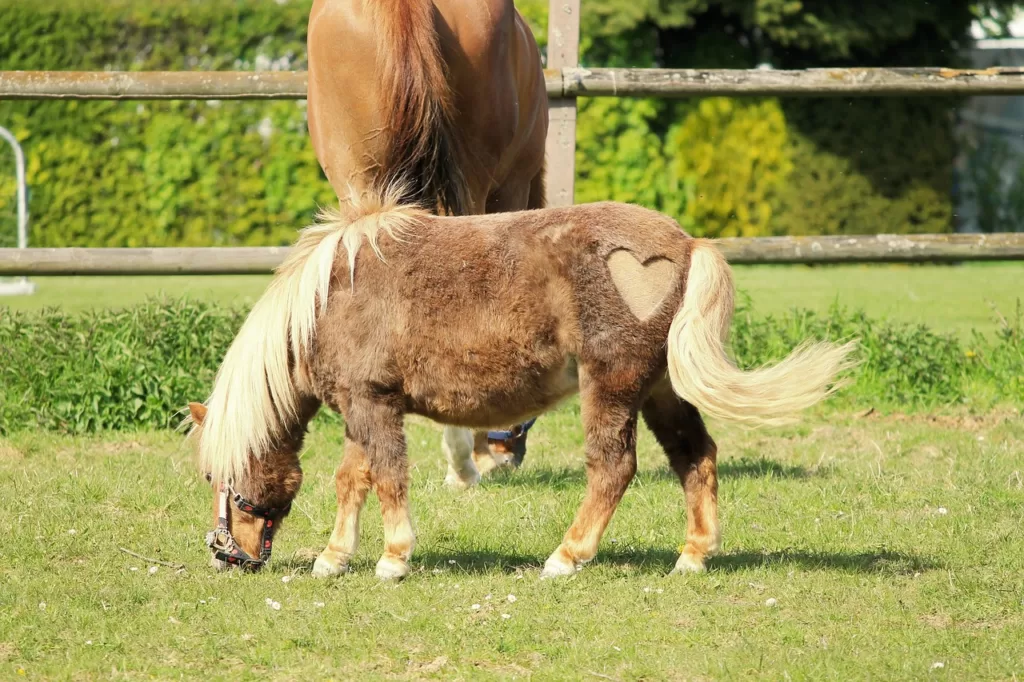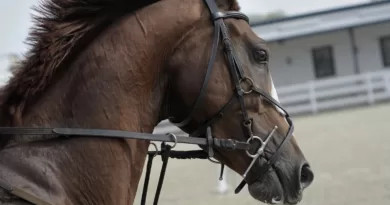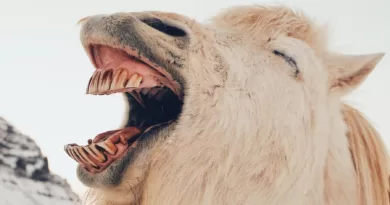How Long Do Mini Horses Live: Unveiling the Secrets of Their Lifespan
Miniature horses have captured the hearts of people all over the world with their adorable appearances and gentle dispositions. These tiny equines, which stand no taller than 34 inches at the withers, have become popular as pets, therapy animals, and even competitive show animals. But have you ever wondered, “How long do mini horses live?” In this comprehensive guide, we’ll delve into the fascinating world of mini horses and explore the secrets of their lifespan.
Introduction
Miniature horses, often referred to as “minis,” have been bred down in size from their larger counterparts over many generations. While they may be small in stature, they boast a life full of charm and charisma. Whether you’re a seasoned mini horse owner or just curious about these diminutive creatures, understanding their lifespan is crucial for providing proper care and companionship.
In this blog post, we’ll cover various aspects of mini horse lifespan, including their average life expectancy, factors influencing their longevity, tips for extending their lives, and frequently asked questions about their care. So, let’s embark on this journey into the world of mini horses and unveil the secrets of how long they can live.
How Long Do Mini Horses Live on Average?
To answer the burning question, “How long do mini horses live?” we must first establish their average lifespan. Miniature horses, when well cared for, can live an impressive 25 to 35 years or even longer. This remarkable longevity is a testament to their hardiness and adaptability.
Factors Influencing Mini Horse Lifespan
Several factors can influence the lifespan of mini horses. Let’s take a closer look at these influential elements:
- Diet and Nutrition: Just like any other living creature, mini horses require a balanced diet to thrive. Proper nutrition is vital for their overall health and longevity. A well-balanced diet that meets their specific needs is crucial.
- Exercise and Activity: Regular exercise and mental stimulation are essential for mini horses. Adequate activity helps maintain their physical and mental well-being, contributing to a longer, healthier life.
- Veterinary Care: Routine check-ups and timely medical attention are imperative. Regular vaccinations, dental care, and parasite control can significantly impact a mini horse’s lifespan.
- Stress Levels: Minimize stressors in their environment. Stress can lead to health problems, so providing a calm and comfortable living space is essential.
- Social Interaction: Mini horses are social animals and thrive on companionship. Ensure they have opportunities to interact with other horses or suitable animal companions.
- Genetics: Genetics also play a role in determining a mini horse’s lifespan. Some bloodlines may be more predisposed to certain health issues, so it’s essential to research the lineage when acquiring a mini horse.
Tips for Extending Mini Horse Lifespan
Now that we understand the factors that can influence a mini horse’s lifespan, let’s explore some practical tips to help you extend the life of your beloved equine friend:
1. Provide a Balanced Diet: Consult with a veterinarian or equine nutritionist to create a diet tailored to your mini horse’s specific needs. Ensure they have access to fresh water and high-quality forage.
2. Regular Exercise: Develop a consistent exercise routine that includes both physical and mental stimulation. This can include light riding, driving, or even agility training.
3. Preventative Healthcare: Schedule regular check-ups with a knowledgeable equine veterinarian. Keep up with vaccinations, dental care, and deworming to maintain their health.
4. Manage Stress: Create a calm and stable environment for your mini horse. Minimize sudden changes, loud noises, or other stressors that can affect their well-being.
5. Social Interaction: If possible, provide your mini horse with a companion, whether it’s another mini horse, a donkey, or even a goat. Social interaction is essential for their emotional health.
6. Responsible Breeding: If you’re involved in mini horse breeding, prioritize responsible practices that prioritize health and longevity. Avoid excessive inbreeding, and focus on producing healthy offspring.
See Also: How long do horses live? Amazing Facts About Horses’ Life
Frequently Asked Questions About Mini Horse Lifespan
Now that we’ve explored the basics of mini horse lifespan and longevity, let’s address some frequently asked questions on this topic:
Q1: Can Mini Horses Live Longer Than 35 Years?
A1: While the average lifespan of mini horses falls within the 25 to 35-year range, it’s not unheard of for them to live beyond 35 years with exceptional care and genetics. Some mini horses have reached their 40s, making them true equine centenarians.
Q2: What Are Common Health Issues in Mini Horses That Can Affect Their Lifespan?
A2: Miniature horses can be prone to certain health issues, including dental problems, obesity, and metabolic disorders like insulin resistance. Regular veterinary care and a well-managed diet can help mitigate these concerns.
Q3: Do Mini Horses Require Different Veterinary Care Than Full-Sized Horses?
A3: While many aspects of equine healthcare are similar, mini horses may have unique needs due to their smaller size. It’s essential to find a veterinarian experienced in treating mini horses to ensure their specific requirements are met.
Q4: How Can I Tell if My Mini Horse is Aging Gracefully?
A4: Aging mini horses may show signs such as weight loss, dental issues, joint stiffness, and a decrease in energy levels. Regular veterinary check-ups can help monitor their health and address age-related concerns.
Q5: Can Mini Horses Be Kept Indoors or in Small Spaces?
A5: Mini horses can adapt to various living environments, but it’s crucial to provide them with adequate space to move and exercise. They can be kept in smaller areas with proper care, but outdoor access is ideal for their well-being.
Q6: Are There Any Dietary Restrictions for Mini Horses to Help Them Live Longer?
A6: Mini horses have specific dietary needs. While they require a balanced diet like any horse, they are more prone to obesity. Avoid overfeeding, and consult with a veterinarian or equine nutritionist to create a diet plan tailored to their size and activity level.
Q7: How Do I Handle Dental Care for Mini Horses as They Age?
A7: Dental issues can become more common as mini horses age. Regular dental check-ups and floating (filing down sharp points) are essential to ensure they can chew their food properly and maintain a healthy weight.
Q8: What Can I Do to Help My Aging Mini Horse Stay Comfortable?
A8: As mini horses age, they may experience joint stiffness and discomfort. Providing soft bedding, regular low-impact exercise, and joint supplements recommended by a veterinarian can help keep them comfortable.
Q9: Can Mini Horses Live Longer with the Company of Other Animals Besides Horses?
A9: Absolutely! Mini horses are social animals and can form strong bonds with other animals, such as donkeys, goats, or even larger horses. Companionship with other animals can enhance their quality of life and potentially extend their lifespan.
Q10: Are Mini Horses Prone to Any Hereditary Conditions That Affect Their Longevity?
A10: Some hereditary conditions, such as dwarfism, can be more prevalent in mini horses. Responsible breeding practices can help minimize the risk of passing on these conditions. Regular veterinary check-ups can also help manage potential hereditary issues.
Q11: Can Mini Horses Live in Different Climates, or Do They Have Specific Temperature Requirements?
A11: Mini horses can adapt to various climates, but extreme conditions, whether hot or cold, can be challenging for them. Ensure they have access to shelter and appropriate protection from the elements to keep them healthy and comfortable.
Q12: Is There a Recommended Age to Start Training Mini Horses for Riding or Driving?
A12: The ideal age to start training mini horses for riding or driving can vary depending on their individual maturity. Generally, it’s best to begin training around 2 to 3 years old, but it’s crucial to take it slow and consider each mini horse’s readiness.
Q13: How Can I Prevent Parasitic Infections in Mini Horses and Promote Longevity?
A13: Regular deworming is essential to prevent parasitic infections. Work with your veterinarian to develop a deworming schedule tailored to your mini horse’s needs, which can vary depending on their environment and exposure.
Q14: What Are Some Signs of Age-Related Health Issues in Mini Horses?
A14: Keep an eye out for signs such as weight loss, changes in coat quality, dental problems, reduced mobility, and behavioral changes. If you notice any of these signs, consult with your veterinarian promptly for a thorough evaluation.
Q15: Can Mini Horses Live Happily in a Residential Setting, or Do They Require More Space?
A15: Mini horses can adapt to residential settings, but they do require enough space to move and graze. If you have limited space, ensure they have daily access to a secure outdoor area for exercise and grazing.
In Conclusion
The lifespan of mini horses is truly remarkable, with the potential to reach 25 to 35 years or even longer. By understanding the factors that influence their longevity and implementing proper care practices, you can ensure that your mini horse lives a happy and healthy life. These pint-sized equines may be small, but their impact on your heart can be enormous.
So, the next time you find yourself wondering, “How long do mini horses live?” remember that with the right care, your mini horse can enjoy a long and fulfilling life by your side. Cherish every moment with these charming companions, and they will undoubtedly return your love and devotion in abundance.
In the world of mini horses, every day is a miniature miracle!
Enjoyed this article? You May Also Like:
- Learn in 5 minutes about Cryotherapy for Horses
- Penicillin in Horses; Impeccable Guide in 10 minutes
- Excede Antibiotic For Horses, Fantastic Facts in 5 minutes
- The Science of Oxytocin in Horses: How This Hormone Influences Equine Behavior
- Can Horses Swim? Everything You Need To Know About Horse Swimming

